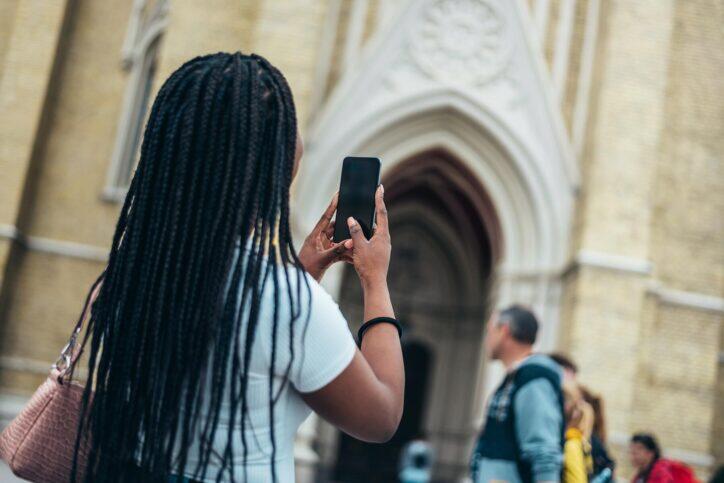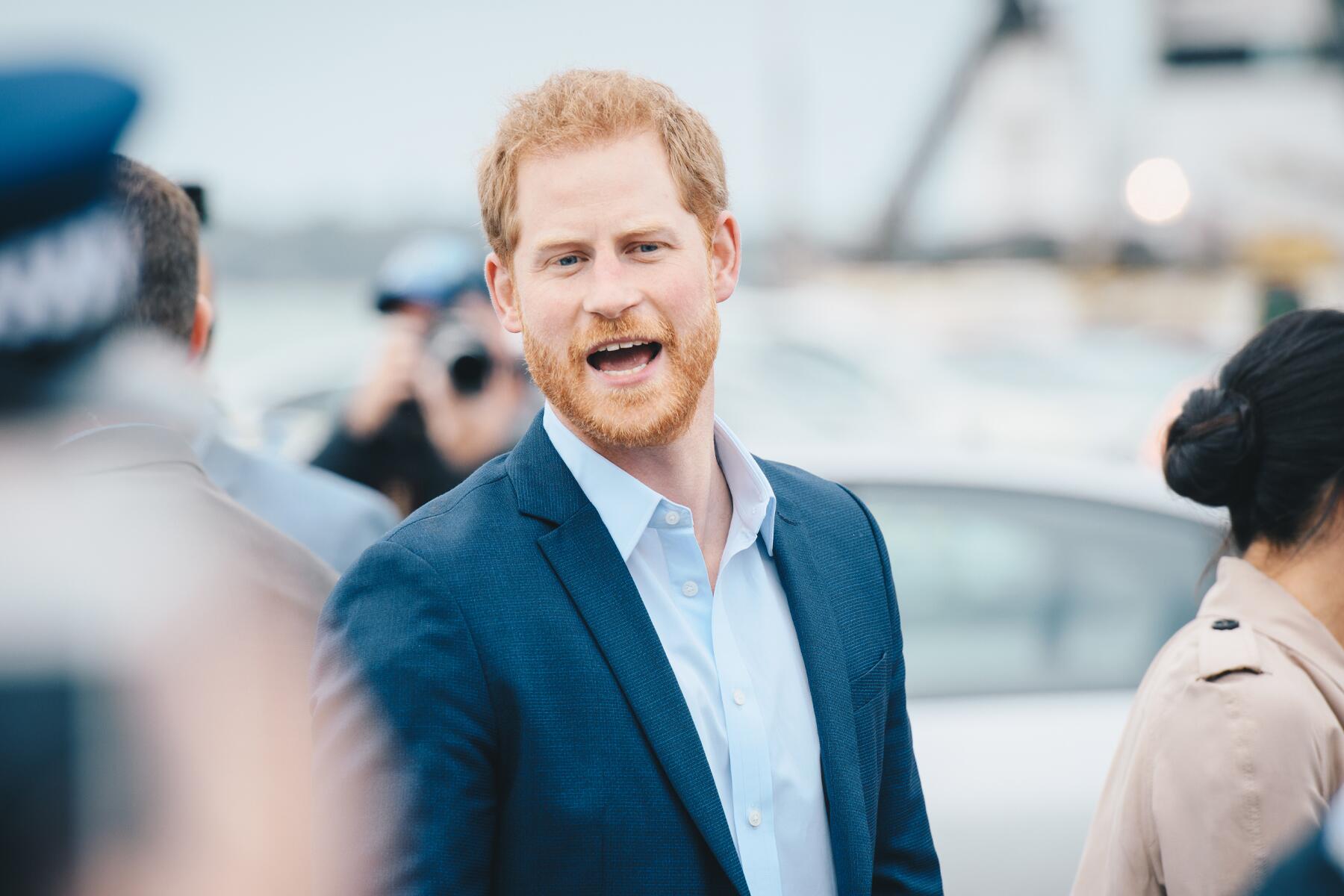Being able to speak multiple languages has many perks abroad, but I’ve found that discrimination doesn’t get lost in translation.
Learning French was my gateway language into becoming a polyglot. After my first year of college, I worked for my high school choir as a translator and featured soloist for their summer tour across France. My job mostly consisted of introducing the choir before performances and teaching the students that “Je suis excité” doesn’t mean “I’m excited.”
On our drive from Dijon to Paris, our tour bus stopped at the Château de Fontainebleau for a quick excursion. As most of the students spread out in the gardens, I made my way up the curved Renaissance stairs to the ticket office to view the exhibits in the castle. I fumbled with my money as I approached the counter. Dealing with international currency has always given me anxiety. My most feared traveling faux pas was mixing up my coins and making all of the locals think I’m an outsider, or worse—an American tourist.
“Hi,” I said in French, already extending my exact change. “I’d like one adult ticket please.” The cashier looked up from his monitor and raised his eyebrow.
Recommended Fodor’s Video
“Oh, for you, it’s free,” he responded in French. He moved aside the pile of English maps on the counter to hand me a French one and pointed to the sign above him.
Tickets:
General Admission—13 euros
18 to 25 years old E.U. Citizens – Free
Before I could explain to him that I was actually an American, he had already printed my ticket and wished me a good day.
I dug my face into the map and quickly headed into the galleries—partially because my tour bus was leaving soon and partially to hide the sheepish grin plastered across my face.

I floated through the galleries on what I can only describe as a high. The high of knowing that my French allowed me to transcend my American identity, even if it was for just an hour. As a Black woman, so many of my identities in the U.S. swallow me whole. When I call to schedule a doctor’s appointment, the receptionist is usually surprised to see me because I “sound white” on the phone. I’ve led social media campaigns at work only to be ignored by clients in meetings because it didn’t occur to them that the Digital Communications Director whom they had emailed for weeks might be a woman. I’ve become accustomed in the U.S. to being written off before I can tell my own story.
As I headed back to the bus, I began to wonder: Could the words of foreign languages fall from my mouth and surround me—momentarily hiding my race, my nationality, my gender—so I could just be me?
I wasn’t sure if that thought made me a good or bad person, but I did know I was hooked on the feeling and that learning another language was the only way I could get my next fix.
———
According to the United States Census Bureau, only 22% of Americans speak two or more languages. But I believe 100% of Black Americans are fluent in code-switching. I think that’s why languages come so naturally to me.
After returning from France, I was deep into German, Russian, Spanish, and Portuguese diction. Soon after, I learned Italian in college and spent the fall of my senior year studying abroad in Milan, Italy.
Whenever I spoke Italian to order at restaurants, this question came before our aperitivi.
“Where are you from?” the server would ask.
“The United States,” I’d say.
No matter the size of the town, I received two standard reactions to my response.
The first reaction was euphoric sycophancy. The server would act as though they were serving royalty from some unknown exotic land. Spontaneous glasses of limoncello would arrive and never end up on our bill. Some would even bring the manager over to our table to hear me speak. If I mixed up the gender of a noun, they would say, “Oh dear, we never remember which one is which either,” and refill my glass of wine.
The second reaction was disbelief. Most would ask where I’m really from—as if further information was needed to explain why a Black American spoke fluent Italian. Some would ask if I was lying and instead an African immigrant in Italy. My response was always, “I’m just an average American.” Some would ask if I was rich—and I knew they meant “American rich” and not richer than the average person on Earth, and so I’d say no, and I instantly felt like a hypocrite as I left the restaurant to catch a plane to my next destination.

———
Taormina was one of my study abroad program’s first excursions. The trip was meant to be a learning experience, but most of us were looking to take in the tourist capital of Sicily and the Ionian Sea. I was one of eight Black students in my program. Most of us came from predominantly white institutions, and we quickly became friends.
Before we headed off the bus, our tour guide slid past the students’ backpacks and duffle bags for a headcount. She paused at my row and leaned over my ear.
“Just so you know,” she whispered in Italian. “Everyone is going to think that you’re a celebrity.”
I gazed down at my walking sneakers and wrinkly romper, and looked up at her with a mix of confusion and gratitude.
Before I could process what she said, she nodded and quickly added, “I’ll be sure to tell the other Black students,” before continuing to count down the aisle.
Lush rolling hillsides and grand piazzas greeted us as we stepped off the bus, but there was only one thing on my mind.
Us?…Celebrities?
My feet barely hit the cobblestone streets before we heard someone yell from the pastel apartment balconies.
Hey Beyoncé!
“It’s just a coincidence,” I murmured to the other Black students, trying to convince myself that it was. But as we passed the boutiques and souvenir shops along Corso Umberto, it was clear that our tour guide was right.
Look, it’s Michelle Obama.
Ciao Rihanna!
As the day went on, the greetings only became more and more frequent. It seemed as though each of us had a famous doppelgänger that only the locals could see, and we were only to be addressed by the names of Black celebrities.
In Sicily, my name was Alicia Keys, and I needed no introduction.
———
In 2018, The Mandala Research Firm found 17% of African Americans take one or more international trips a year. Media rarely showcases average Black Americans abroad. Of the few depictions of Black travel, they’re mostly in music videos, movies, or highly televised political events. If you’re near a computer, take a moment to search “Travel Blogger” in Google Images. Scroll through the endless photos of white women on the beaches and white men overlooking mountains. Notice how normal the lack of Black and brown bodies feels. Now, feel the space our absence takes up.
———
After hours of celebrity meet and greets, Beyoncé, Michelle, Rihanna, and I found solace in a small bistro overlooking the sea. Out of the corner of my eye, I noticed a little girl sitting in her mother’s lap staring at us. Her wispy blonde curls and rosy cheeks made her look like a real-life American Girl doll. Her eyes glimmered with genuine adoration as she took turns looking at each of us. When I turned my face to look at her, she giggled and buried her face in her mother’s shirt.
“I’m sorry,” the mother interrupted with an Eastern European accent I couldn’t place. “My daughter loves your hair. Can she take a picture with you?”
Despite all the languages I knew, I was at a loss for words.
I sighed. “Sure.”
The little girl hopped over to our table and stood right in front of me. As we posed for the camera, I could feel a gentle tug on one of my box braids. I didn’t look, but I knew it was the little girl pulling my hair.
I wanted to tell the little girl to stop touching my hair.
I want to explain the history of braids and locs and wigs in the Black community.
I wanted to stop the mom from taking our picture.
I wanted to use the moment as a lesson to showcase how a seemingly harmless action can make a person feel like an object.
Instead, I said nothing and smiled. I knew that no matter what language I spoke, what I wanted to say would get lost in translation.



